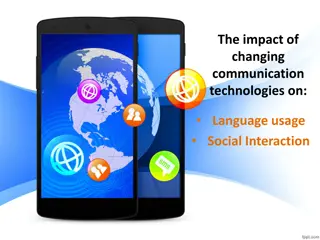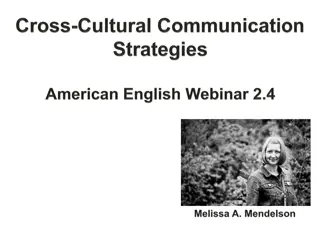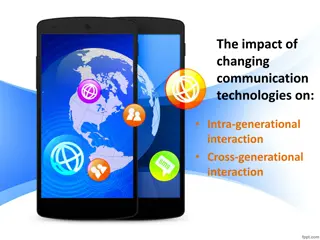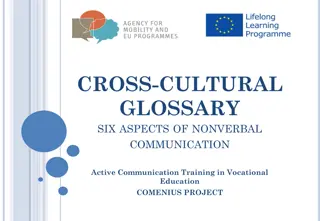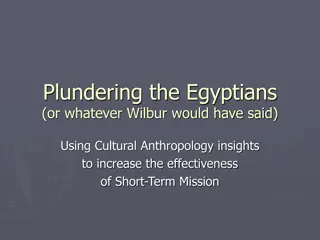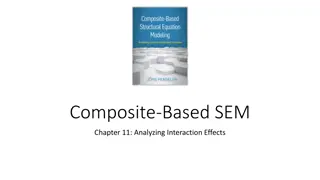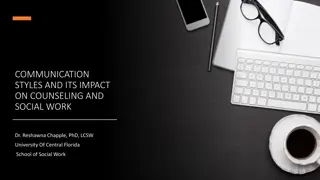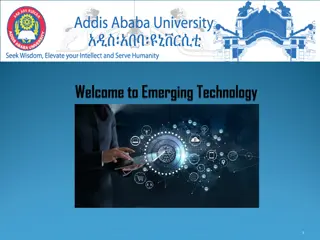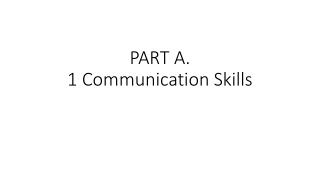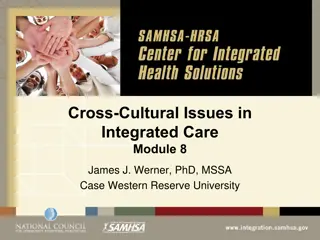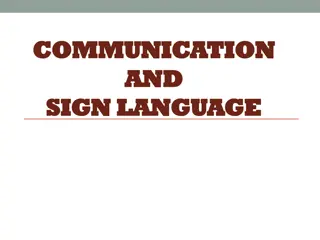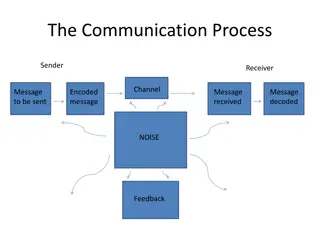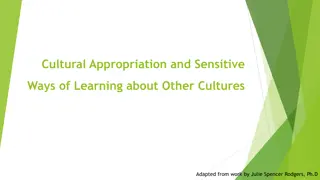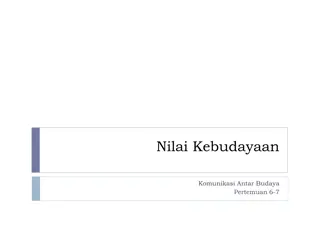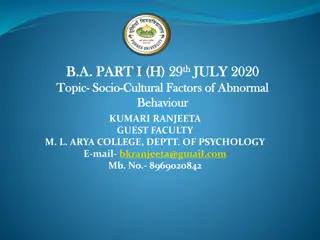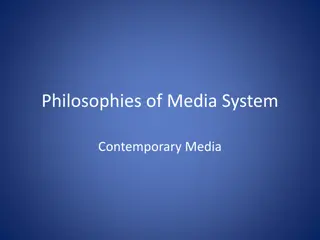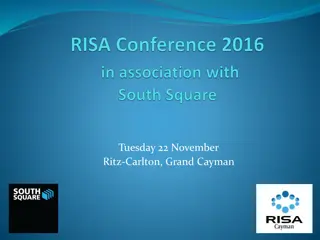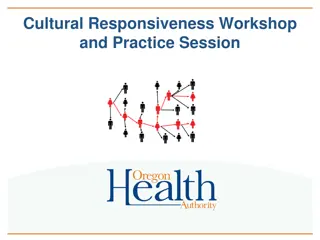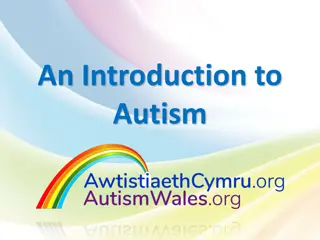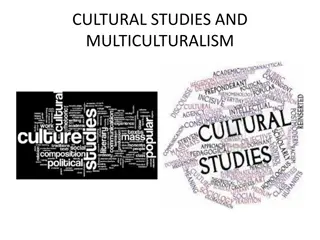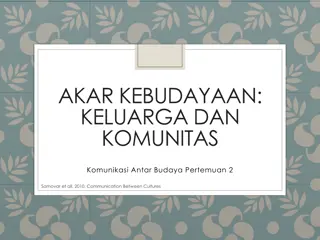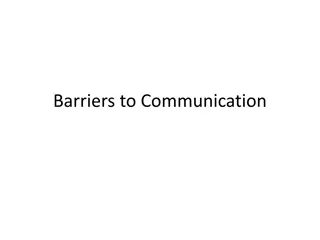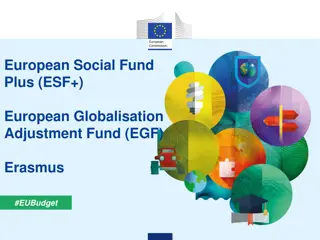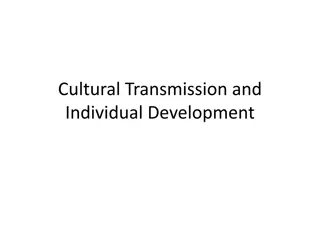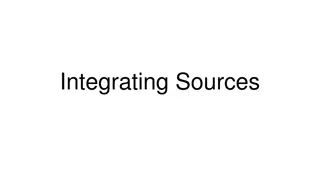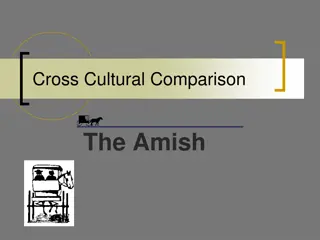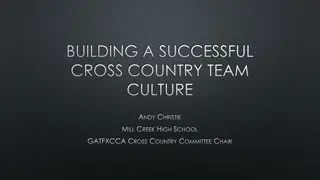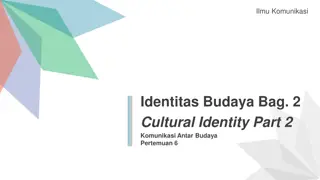Impact of Changing Communication Technologies on Cross-Cultural Interaction and Globalisation
The impact of changing communication technologies on cross-cultural interaction is evident in events like the Cronulla Riots, where SMS and social media played a powerful role in inciting violence. This led to a closer examination of how technology influences identity, power, and authority dynamics in intercultural conflicts. Furthermore, globalisation, facilitated by advanced communication channels, has both advantages and disadvantages, such as promoting clicktivism and slacktivism. Understanding these effects is crucial in navigating the intricate web of interconnected global relations.
- Communication technologies
- Cross-cultural interaction
- Globalisation
- Identity dynamics
- Power dynamics.
Download Presentation

Please find below an Image/Link to download the presentation.
The content on the website is provided AS IS for your information and personal use only. It may not be sold, licensed, or shared on other websites without obtaining consent from the author. Download presentation by click this link. If you encounter any issues during the download, it is possible that the publisher has removed the file from their server.
E N D
Presentation Transcript
The impact of changing communication technologies on: Cross-cultural interaction Globalisation
Cross-Cultural Interaction: The Cronulla Riots The 2005 Cronulla riots were a series of race riots and outbreaks of mob violence in Sydney, beginning on 11thDecember 2005 in the beachside suburb of Cronulla which spread, over the next few nights, to additional suburbs. The riots stemmed from tensions between youths from Sydney s Lebanese and Anglo populations. The riots were condemned by local, state and federal members of parliament, police, local community leaders and residents of Cronulla. Strike Force Enoggera was established on 13thDecember 2005, tasked with investigating the riots. SBS has released a documentary and an interactive experience on the riots http://www.sbs.com.au/cronullariots/
Activity: Visit the interactive website and complete the questions 1. 2. 3. Scroll down and read the info about the project . Scroll back up and click begin . Watch the initial preview of documentary that begins as soon as webpage loads Click Media Find title and click on Prof. Catherine Lumby on hate speech via SMS a) How was hate speech distributed? b) What key factors played a role during the riot? Click on Prof. Greg Noble on text messages Describe how powerful SMS and social media were in inciting violence on the day of the riots. Click on Poll Results Did you receive a text? How many texts were sent to incite rioters? What was it the first instance of, according to Prof. Kevin Dunn? Click on Prof Catherine Lumby on moral panic . Describe the theory of moral panic that Prof Lumby applies to the Cronulla Riots Write 1-2 paragraphs explaining the impact that communication technologies had on cross-cultural interaction during the Cronulla Riots. In your answer, refer to the concepts of identity, power and authority. 4. 5. 6. 7. 8.
Globalisation Globalisation is the process of interacting with people, institutions and businesses internationally. Changing communication advantages and disadvantages understanding. The global spread and penetration of new technologies may encourage some to search and gain knowledge on cultural practices via the internet rather than experiencing this transaction of knowledge first-hand though travel. Globalisation allows the fast flow of information to spread throughout the world which provides awareness of issues but has also given rise to clicktivism also known as slacktivism technologies have for cultural Clicktivism using the internet to promote a cause but not actively participating in the cause itself
Activities ttp://ba.one.un.org/content/dam/unct/bih/agencies/bunicef.gif Watch this Read the Globalisation article and complete the questions on the next slide advertisement
The rise of the digital saviour: can Facebook likes change the world? Article https://www.theguardian.com/world/2015/jun/18/digital -saviour-saving-lives-internet-age-save-darfur
Questions 1. How technologies shaped the way the Western world global issues? Do you think these clicktivism websites/apps/technologies having a positive or negative impact on our perceptions of developing worlds and why? (Consider the argument about superiority and how limited we as individuals are understand the issues facing these countries) Have you engaged in any aspects of clicktivism ? If so, explain why. Is there anything that prevents you from contributing to the cause? Watch the UNICEF advertisement. What point is it trying to make? How does it make you feel? have communication engages with 2. are Western involved or 3. 4. Sweden




